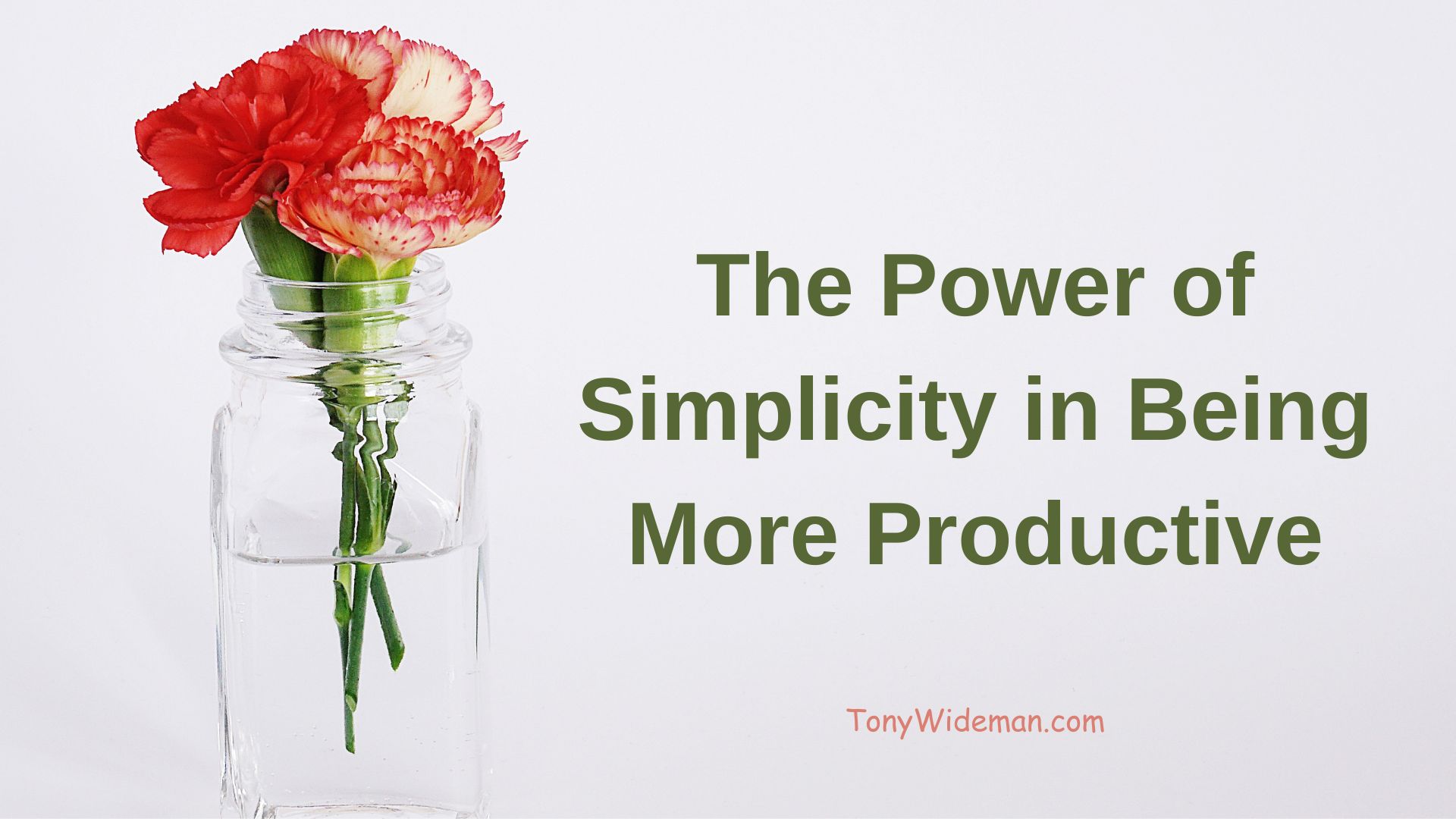9 Super Tips To Save Money Fast As A Minimalist

Save money as a Minimalist? Yes, I believe it’s the best way to save money fast. Most of us are looking for ways to save money fast, and personal savings rates in the United States have been steadily declining for the past few years. If you are being affected by rising inflation, interest rates, and low employment, people are looking for more ways to save money.
As a Living Simple Minimalist, I really don’t mind living from paycheck to paycheck. My goal is to earn enough to live a Minimalist Lifestyle and nothing more. If I earn more, I consider it gravy, and I have learned many ways to save money fast as a Minimalist.
If you are curious about how I, as a Minimalist, save money fast, stay tuned. I am sharing this to spread knowledge about how Minimalism Has improved my financial situation, offer tips for living minimally, and highlight its benefits.
I need to keep it real. It is essential to have a small stash for the unexpected. Car repairs, home emergencies, or medical bills often appear at the most inconvenient times. If you are lucky enough to have a built-in stash of funds, life will be more enjoyable.
If you would like to build a stash of funds to cover six months or more of your bills or live a more stress-free life, follow my many ways to save money fast as a Minimalist.
How Minimalism Saves You Money
Traditional Minimalism is not focused on saving money. Saving money is just a welcome byproduct of living a Minimalist Lifestyle.
Minimalism is more about intention and choice, rather than what you own or the number of items you own. If your Minimalist intention is to save money, then by all means, that is what will happen.
Put, your choices will align with your actions. Here are the most effective ways to apply Minimalist Living principles to save money quickly.
Intentional Consumerism
Honestly, I would buy what I wanted and a lower-cost version if I couldn’t afford it. I called this treating myself well.
I would promise myself it would be just this one time. Luckily, I never went into debt, but over time, I found myself surrounded by so much junk, and none of it made me happy long-term.
I would stumble over one of the items surrounding me, stare at it deeply, and realize it only made me happy when I was purchasing it. No other time after that. Now they collect dust and create an obstacle course in my home.
Shortly after that realization, I slowly became a Minimalist. Not intentionally, but it was a natural progression.
As I began to explore Minimalism more deeply, I was surprised at how much time and money I had wasted—specifically, the time spent researching items and the even more time wasted daydreaming about owning them. Worst of all, the time spent earning money and sometimes working overtime to purchase that junk.
Almost none of us are fortunate enough to earn a living doing something we love. This means many of us spend time away from the people and things we actually love to earn money. Then we waste some of that hard-earned money on buying useless things. Does that sound like you? Even a little bit?
There is no right or wrong way to live a Minimalist Lifestyle. I decided to add more value to my life. I choose not to work as much and spend more time doing the things I actually like.
This left me with less money, but I also decided to become more intentional about what I purchased. As a result, I spend a lot less money. I ended up with more disposable income and time to do even more of what I love.
Downsize and Save Money
Downsizing is synonymous with saving money. Minimalist Living has also become synonymous with saving money. At its extreme, you can save almost 100% of your living costs.
A realistic estimate of cost savings due to downsizing is around 25% to 50% of your living costs. I am not talking about moving into a cardboard box either. I prefer living out of a home rather than in one. I no longer need a lot of room or space to be pleased.
This simple step can save you a significant amount of money on rent, mortgage, home maintenance, and associated costs. Moving across town or even better across the world can save you a ton of money.
I always recommend downsizing as the quickest way to save money: just a little planning, no pain, gain.
Mortgage and rent are probably your most significant expenses. Downsizing it even temporarily could save you a considerable amount of money every month.
Better Manage Time and Energy
Did you know being overwhelmed can be expensive? The health risk aside, it can be costly, and you tend not to make significant decisions at the time. Poor choices are always costly, which is why they are inadequate. Some poor decisions cost you time, others cost you money, and the worst of all cost you both.
I make the worst decisions when I am tired and or hungry. When I feel too tired to cook or plan meals, the resulting compromises are almost always more costly and less healthy.
Just the other day, I went into Walgreens to get a bag of assorted nuts for a snack. I saw a woman dragging two of their wheeled shopping baskets full of groceries around the store.
I immediately said to myself that it was going to cost her three times as much as she should be paying. Not to mention, for lesser-quality goods and a lack of variety.
This was in New York City, where regular food stores like Walmart or Whole Foods are few and far between. It was apparent she was too tired or did not have the time to do better. For some reason, I pictured her rushing home, a few blocks away, with all of those items to get dinner ready for her family.
Only because I have been there, when I am exhausted or feel I have no time to do better, I go into survival mode. As discussed earlier, that can be a horrible place to exist.
Since deciding to be more intentional in living a Minimalist Lifestyle, I don’t experience survival mode nearly as much.
Minimalism did not make me smarter or endowed me with special powers. Living a Minimalist Lifestyle blessed me with more time and energy to be my brilliant self.
I am rarely in survival mode. I am calm, cool, and collected like Tank in The Matrix. I am manipulating that Matrix Code with ease, solving life’s problems even before they occur.
No more looking for quick survival mode fixes or choosing from a bag of increasingly worse choices. I am intentional about how I move throughout the day, selecting only the best of all situations to add value, not chaos, to my life.
The time and money saved are worth more than gold. I no longer think, I act—no more Decision Fatigue at the end of the day.
Minimalism, Intention, and Focus
When you decide to live a Minimalist Lifestyle you agree to live a set of rules, a creed. This inherently will force you to be more intentional and focused in your everyday life.
Have you ever stared at a Pit Bull at rest (or maybe any dog)? First, there is no problem. After a minute or two, you will get its attention. Seconds after continually staring, it snaps to attention, stands, and slowly begins walking toward you. No need to begin smiling and talking nicely. It’s on, and you started it.
That is how I describe the newfound intention and focus that living a Minimalist Lifestyle can bring to your life. Like the PitBull, you already know what you are going to do in certain situations.
You’ve already thought about it; you’ve planned for the best possible outcome in every possible situation. There is nothing else to do but react correctly.
To be successful, you must develop a long-term intention and focus. This gave me a powerful sense of control over my life. There were no more surprises.
Over time, I began to realize I was even freer. I realized due to the number of my basic expenses being cut I did not feel the need to stack dollars constantly. Everything was paid.
If opportunities to make extra money came up and I was not feeling well or preferred to do something else, I could say “NO”.
I realized the word “NO” is a complete sentence. The word “NO” empowered me. Saying “No” to the less desirable aspects of my life allowed me to say “yes” to the parts I valued the most.
I even began experimenting with something that felt counterproductive to me. I have to be honest, it just felt wrong. I BEGAN TO PAY MYSELF FIRST.
Yeah, I save money first. That felt strange to be. I usually only saved money if I had anything left after paying bills. This felt GREAT.
It incentivized me to save even more. I became an even better Minimalist as I utilized the lifestyle and extra money to bring my personal vision of happiness to life.
How to Be a Minimalist and Save Money Fast
Anyone with half a brain knows you can easily save money by spending less or doing without. Some people, like me, have even made it the foundational philosophy of life, called Minimalism.
If saving money slowly is not enough to meet your needs, try these ways to save rapidly. This sounds simple and actually is. Some people say Yeah, right.
That is not as easy as it sounds, but it actually is. You can do it the easy way. The way I have been preaching and screaming for years.
1. Get a Paying Job
I know it sounds crazy, but why not? It could be as simple as taking a promotion at your current job or jumping ship to work for a competitor. You may have more options than you think.
Even a job with similar pay but that offers the option to work from home can be considered a higher-income job.
2. Start A Side Hustle
Just this idea gets my skin all tingly. This is the best time in human history for any Joe Schmoe to start a Side Hustle. With the GiG economy, you can begin earning extra money in minutes with a simple App on your phone. Take your pick.
You can go the more traditional route and start an actual business. Online using today’s technology would be the best way to go. I suggest Affiliate Marketing, but be sure to do your research and watch your bank account grow quickly.
3. Stop Spending Money
This is the quickest way to save money, but for almost all of us, it just would not be practical. We all have bills to pay, expenses, and life’s essentials to manage.
Next to robbing a bank, this is the quickest way to save money. Robbing a bank to stop spending money may not be a realistic option. Since I became a Minimalist, not spending money has become a more viable option for me.
You would be surprised at how much money the average person spends daily on things they neither need nor want.
In fact, the average adult in the USA spends $1,497 a month on nonessential items, according to research commissioned by Ladder and conducted by OnePoll. All told, that’s roughly $18,000 a year on things we can all do without.
USA Today
Sometimes spending is just on autopilot. Take a deep look at ALL of your spending to determine what you can cut back on and what you can eliminate.
The non-essentials will come to mind quickly and will be the easiest to deal with. There is not much you can do with fixed expenses at this point, but you must pay them. You will need to be more intentional with your spending on memberships, entertainment, dining out, and similar expenses.
All of those became a “NO” for me, but you will have to choose for yourself.
4. Create A Simple Budget and Stick To It
This approach did not work for me, but it may be effective for you. The goal is to reach a point where you no longer need a budget. We all have tried to stick to a budget and failed. Once we have calculated our total income and total expenses, we spend less than that.
Simple, right?
Now comes the challenging part: sticking to a budget. How much can you convince yourself you do not need? Most of us not only live above our means, but we have also convinced ourselves that the bottom is higher than it actually is.
We believe we can’t do without things we have never needed. Please don’t wait to fall on hard times to figure it out. Figure it out now and stick to a simple budget.
I mean, you really don’t have to eat every day. Seriously, you don’t. We believe we can’t do without things we have never needed. Be honest with yourself and determine your limit.
5. Smaller Home
Yeah. With all the downsizing and decluttering you may have done, you may realize that downsizing your living space can also benefit you. How many rooms you don’t even use would you like to clean?
Let’s face it, most of us live in a home that is more than twice the size that we need. With our work and play schedules, we may spend less than 8 hours a day in our homes and even less time awake.
How many waking hours do you actually spend enjoying your home every day? How much are you willing to spend or save to spend less than eight waking hours a day in our homes?
6. Intentional Living
Common sense would have you believe that your financial situation dictates your lifestyle, but you would be wrong. Some of us live below our means, but an overwhelming number of us live above our economic means.
Just stop and live with more intention. Live with only the things you actually want and need and discard the rest.
There is something incredibly satisfying about eliminating things from your life that you honestly thought you could not do without. Wink! Wink!
Do you really need that large Matcha Latte every day?
I am sure there are many ways to painlessly cut your expenses, such as impulse buying, smoking, drinking, and playing the lottery, among others.
7. Garage Sale
Sell all the things you recently realized you no longer want or need. Technology makes this easy. Beyond a garage Sale, you can sell those items online using several services.
You can also have consignment stores in your neighborhood sell them. Sell them to a Thrift Shop. Lastly, you can also consider donating to your favorite charity, such as The Salvation Army or Goodwill.
8. Rent Your Spaces
I am not a fan of this one, but again, technology makes this easier. You can use services like Airbnb or Vrvo to rent out your space. Renting out your space can be as simple as finding a roommate or renting out a portion of your garage, basement, or attic for storage.
Believe it or not, for many people in more rural areas, you can rent your land or even a driveway for parking or RV camping.
9. Drive Less
I am a big fan of this one. I live outside of New York City in New Jersey. I have the luxury to consider not driving as often as I like. I understand that most people don’t have that option, but many people believe they don’t really have it.
Put your preconceived notions aside and give walking and public transportation a try. I ditch the car as much as possible and live like a tourist visiting New York City, and I love it.
It has changed my life for the better.
If not, consider driving less to save money on gas, tolls, and possibly even car insurance. If you don’t drive much, switching to better car insurance can be more affordable.
How To Save Money Slow
Saving money slowly will involve a change in thinking and lifestyle. It will closely resemble living a Minimalist Lifestyle; how much is up to you. The changes listed will result in saving money, amongst many other positive benefits.
1. Pay Yourself First
Once your finances are on track and you are on budget, start paying yourself first. If you can split your payroll direct deposit to separate bank accounts, do it. Typically, one account would be a checking account, where you pay bills and spend any disposable income. The other would be a savings account where you save money and rarely spend it, but for emergencies.
Paying yourself first before all others has a way of empowering you and giving you the feeling of being the Top Dog. This will also empower you to make the tough decisions more easily.
2. Appreciate Everything You Have
Don’t be the person who only appreciates things when they are gone. This applies to people in your life and material possessions. Appreciating what you have is a powerful concept when you are trying to save money.
That appreciation is key to fighting impulse buying, peer pressure, and the cultural disease of keeping up with the Joneses.
3. Choose Your Tribe Wisely
Life will become easier and more enjoyable when you surround yourself with like-minded people. If those people love, embrace, and support you, then consider yourself highly blessed.
These people will support you in your journey to save money and many of the other goals you may have. Sure, they may laugh or make fun of some of the choices and solutions you make along the way, but they still support you.
If one of my good friends set a goal to save more money, I would clown him every chance I got, but would support him even more.
4. Consolidate Your Debt
Tap and pay can lead to financial trouble. It’s just getting too easy to walk into a store and walk out with a bunch of junk. Online is even more convenient. You don’t even have to get off the couch.
When used correctly, the convenience of credit cards can be beneficial and painless. When misused, it will become excruciating, mentally and sometimes physically.
I try to never buy on credit that I do not plan to pay in the next month. For those who carry a credit card balance or any other debt, consider consolidating them. High-interest-rate debt should be a Sin. It’s a hole that is nearly impossible to climb out of.
5. Buy Used
I found this to be strange for most people. Yes, people can see the benefit of buying a used car or a home that is not new. They fail to see those same benefits in purchasing used clothing, electronics, tools, appliances, and everything else. The benefits are similar, if not more lucrative.
You not only get a better price, but better quality most of the time. Sometimes, you end up making a trade without spending any money at all. One man’s junk is another man’s treasure.
There is also a save the world, sustainable aspect to buying used. You give items a longer life, slow the production of new junk, and save items from ending up in a landfill just a little bit longer.
6. Do It Yourself
Few things come close to the satisfaction of repairing or building something for yourself. You also save money and, even more importantly, learn something.
Don’t bite off more than you can chew, but you are capable of doing automobile and home maintenance repairs yourself. You can go online and find a video that will show you how to do almost anything. Start small, use your best judgment, learn, and save money regularly.
Please don’t develop a hobby in the process. That could become expensive and defeat the whole purpose.
Conclusion
They say money can’t buy happiness, and I reluctantly agree. I say reluctantly because you can’t be happy unless your basic needs are met, and money can help you accomplish that easily in almost any environment.
I can imagine a few common reasons why you might want to save money quickly. There are important reasons, such as life-changing events, all the way down to the petty, like simply enjoying the feel of money.
They are all valid. I hope you found some value in some of these suggestions. As always, if you know a few good ones that may help us all, please put them in the comments below.
I truly believe living like a Minimalist is one of the best ways to save money fast. By living this lifestyle, you will never need to budget again.






